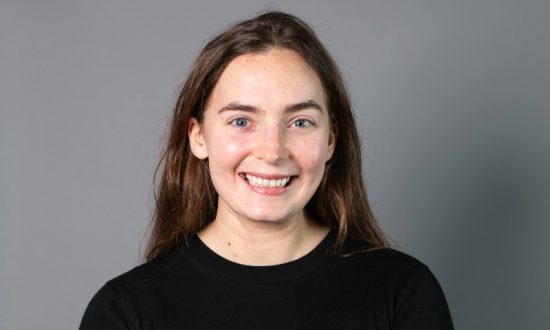Nicole Kyle is Managing Director and co-founder of CMP Research. Nicole joined CMP in November 2021 from Gartner, where she spent eight years leading research and advisory. Nicole is known for her exceptional work in customer contact, workplace strategy, and employee engagement, delivering frame-breaking insights that have supported critical decision-making across hundreds of enterprise-level leadership teams. Prior to Gartner, Nicole was a journalist and still maintains the natural curiosity of journalism in her research.
Recently, in an exclusive interview with CXO Outlook Magazine, Nicole shared her insights on the biggest challenges faced by business executives in today’s business environment, her career trajectory, the inspiration behind establishing CMP Research, significant career milestones, words of wisdom, and much more. The following excerpts are taken from the interview.
In today’s rapidly evolving business environment, what are the biggest challenges faced by business executives?
Redesigning work and employer value proposition around remote and hybrid work, cost containment and reduction given current economic pressure, building equitable and inclusive workplaces and contending with rapid progression in technology, like generative AI, are among the top challenges executives face today.
These are all magnified in customer contact and customer experience organizations because of the nature of customer contact work and the uniqueness of its workforce.
What makes a business more customer centric? What are the key elements of customer centricity?
Customer centric businesses design both products and services for customers individual needs, ideally before the customer can even articulate what they want. From a service perspective, customer centricity is about personalization, flexibility, ease, efficiency, and support.
Nicole, please tell us about your professional and personal background.
I’ve been a future of work researcher for ten years. I started my career at Corporate Executive Board on the customer contact research team with a stint in procurement & operations research before finding my long-term area of specialization: future of workplace and work. CEB was acquired by Gartner in 2017 and I enjoyed my work as a Gartner analyst immensely.
I joined Customer Management Practice to start our research division to scratch my entrepreneurial itch and see how I could marry my future of work expertise with customer contact and CX research.
What inspired you to establish CMP Research? Tell us about its mission and vision.
I saw a white space in the information and professional services market for research, advice and executive networking support for customer contact executives navigating the future of work. There’s a lot written about the future of work’s impact on business at-large but rarely specific to customer executives. We know the customer contact function and workforce are incredibly unique, given the nature of the work. Customer contact work is emotionally taxing, extremely tools reliant, and the workforce can be highly transient. The nature of customer contact requires a fit-for-purpose strategy for the future of work, differentiated from that of other corporate functions.
In your current role, what kind of challenges do you face and how do you overcome them?
Like many leaders, I often wonder if I’m doing leadership, right? I learn something every day about how to be a better manager, coach and leader and I will never stop learning. And I’ll keep making mistakes. But that consciousness and accountability to the team is important. To me, leadership is more about listening than talking.
You are also a Co-creator and co-host of I Also Want Money. Can you tell us about your podcast show?
Yes! That’s something I do outside of CMP Research – for my own learning and because of my passion for gender equity. The mission of the podcast is to democratize, demasculinize and demystify making money. The gender wealth gap is bigger than the pay gap, though the pay gap is of course a driver of it. A 2021 study shows women’s median household wealth in the US was 55 cents to every dollar of a man’s median household wealth. We explore all the different ways women and other systemically marginalized people can invest their money – the third leg of the earning-and-consuming personal economic stool.
Can you please shed light on the gender wealth gap? What needs to be done to bridge this existing gap and prevent it from happening in the future?
It’s less about prevention – we’re already in it – and more about action: learn about all the different ways you can use money to make money and decide what amount of risk works best for you. One of the problems is that access to that education, vernacular, a network is far from equal – so the podcast is a small drop in the bucket toward closing that education and conversation gap. Women (and anyone trying to build generational wealth where it hasn’t existed before) need to talk about money!
Which one of your accomplishments makes you the proudest to date?
Being named a LinkedIn Top Voice in Gender Equity in North America in 2022.
What is the one lesson learnt that’s unique to being a woman leader?
Tough question. Speaking to my experience, imposter syndrome has been something I’ve had to deal with and I have to actively work at letting it not get the better of me. It’s tough but I have learned to make bets on myself and create an inner confidence that equips me to get through a would-be “imposter” moment.
Where do you see yourself in the next 5 years?
Thriving at the helm of CMP Research! And still advocating for gender equity in the workplace and in society, helping everyone reflect on their behaviors, the systems they are a part of, and how to change it.
What’s your no 1 piece of advice for the aspiring female professionals?
Ask for what you want and what you need at work. And if you can’t or it feels too scary, you might be in the wrong environment.


